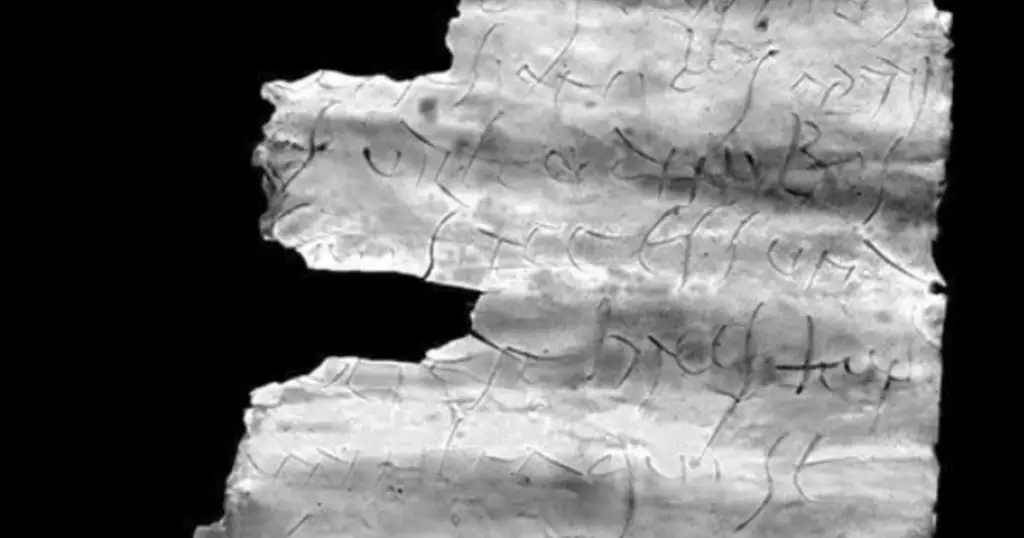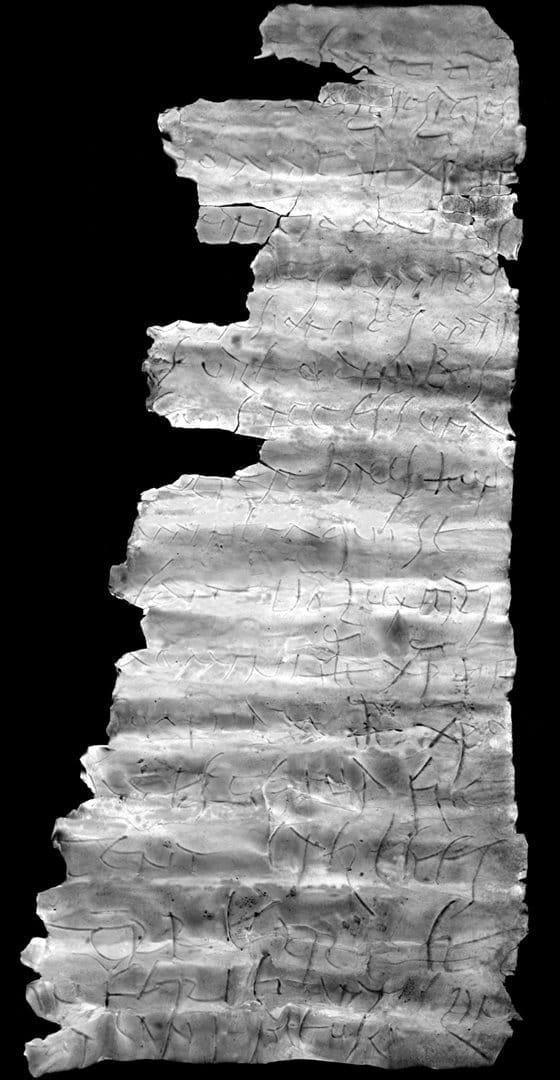Archaeologists have discovered a silver amulet with an inscription that a theologian now says could rewrite the history of Christianity north of the Alpine chain.
The inscribed amulet was found buried in a grave in Frankfurt, Germany in 2018. says a press release from the city. The amulet was a little more than a centimeter tall, the city said, with a rolled-up thin piece of silver foil with writing inside. It took years to figure out what the inscription said: it had to be deciphered through a computer scan because the film was too fragile to unroll. The so-called “Frankfurt Silver Inscription” was presented to the public at the beginning of December.
The inscription was found to be a confession of faith in Jesus Christ written in Latin. The statement shows that the wearer “was clearly a devout Christian, which is absolutely unusual for this time,” the city said.
Researchers dated the grave in which the amulet was found to between 230 and 270 AD. This was the earliest evidence of Christianity north of the Alps, the city said: All other finds were several decades younger, although “sure Evidence” of religion in the region dates back to the 4th century.
Leibniz Institute for Archeology in Mainz
No religion is mentioned in the inscription other than Christianity, which researchers say is unusual. Until the 5th century, such amulets “always contained a mixture of different faiths,” such as Judaism or paganism. Instead, it is based entirely on Christianity. At one point the invocation “Holy, holy, holy!” is heard. Previously, researchers had dated this invocation to the 4th century at the earliest. The amulet also contained quotes from the Bible, which were used by Christians at the time.
“The ‘Frankfurt Inscription’ is a scientific sensation,” said Mayor Mike Josef in a translated statement. “It will force us to turn back the history of Christianity in Frankfurt and far beyond by around 50 to 100 years. The first Christian discovery north of the Alps came from our city, and we can be proud of that, especially now, so close to Christmas. Those involved did a great job.”
Researchers said this find will lead to a reassessment of the burial site where the amulet was discovered. It will also lead to a revision of ideas about Christianity north of the Alps.
The German church historian Ulrich Volp said the Evangelical Press Service that the amulet can be used to understand how Christianity spread throughout the Roman Empire in the 3rd century, even in the midst of persecution.
“The significance of the discovery can hardly be overstated,” said Volp.
The news comes about six months after an expert in Germany said a newly deciphered manuscript dating back 1,600 years was identified as the oldest record of the childhood of Jesus Christ.






